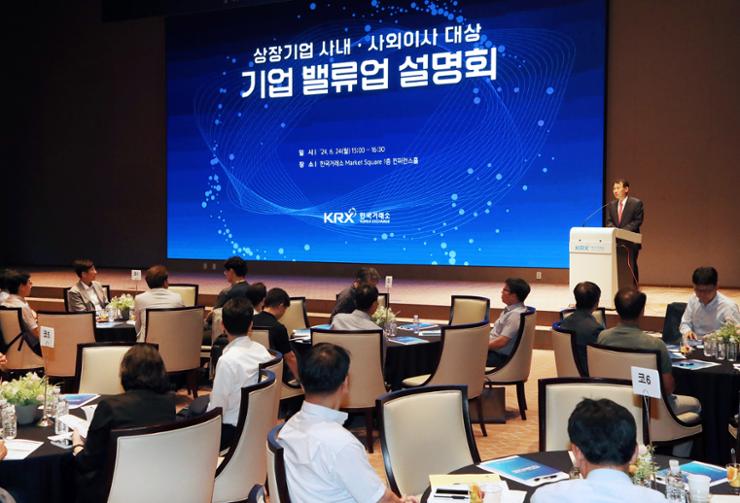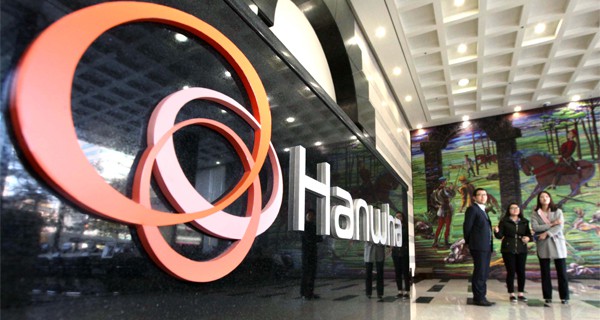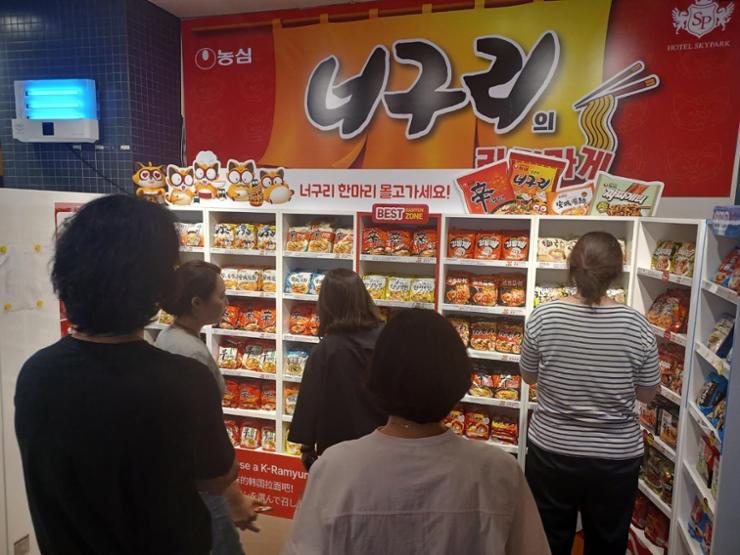Korea will no longer be able to register a significant trade surplus with China, reoriented by rapid high-tech advancements in the world’s second-largest economy with diminished needs to import Korea’s intermediate goods, market watchers said Monday.
Semiconductor products, including intermediate goods, account for about a third of Korea’s export total to China.
Experts say elevated geopolitical tensions pose risks similar to export curbs to the export-oriented Korean economy amid the drawn-out U.S.-China feud.
According to the Ministry of Trade, Industry and Energy, Korea’s exports logged $57 billion (78.7 trillion won) in June. The year-on-year increase of 5.1 percent was a nine consecutive month of surplus underpinned by semiconductor exports exceeding $13.4 billion.

Solidifying the GDP-bolstering growth was the artificial intelligence (AI) boom pushing up the global chip demand.
Korea’s trade deficit with China came to $5.43 billion in the first six months, less than half of $13.13 billion in deficit a year earlier.
It was ascribed to Korea’s semiconductor exports to China in the first five months reaching $18.6 billion, an year-on-year increase of 36.8 percent from the previous year when the global chip cycle demand remained largely stagnant.
According to the Korea International Trade Association, China is gradually reducing reliance on import for intermediate semiconductor goods over the past few years.
Up to 40 percent of global semiconductor exports was oriented toward China from 2019 to 2022. But the figure sank to 35.5 percent as of end-June, a further drop from 36.6 percent for the whole of last year.
The U.S.-China tech feud has exposed critical risks for Korea’s export-driven economy, according to Hoe Ee Khor, chief economist of the ASEAN+3 Macroeconomic Research Office (AMRO).
Korea is more pivoted towards the U.S., experiencing benefits such as higher exports to the U.S. It led to a greater share of the U.S. import market, while China’s share dropped.
Korean auto- and chip manufacturers with U.S. investment were granted subsidies provided by the U.S. government under the Inflation Reduction Act (IRA) and the CHIPS Act.
However, pockets of risks will become pronounced, in his view, since China remains a major source of demand for Korea’s exports.
“To the extent that the U.S. continues to pressure Korea to limit exports of critical technology to China, such as demands for Korea to restrict exports of semiconductors and related equipment to China, Korea may experience a substantial loss in export revenue,” he said.
Also coming into play is Korea’s dependence on key China-sourced metals and minerals used in producing semiconductors and electric vehicles (EVs).
China imposed curbs on the exports of gallium and germanium, two metals essential for chip production, in August 2023.
It thereafter restricted exports of graphite, a critical mineral for EV batteries in December of that year.
“Korea could see similar policies in the near- to medium term amid elevated geopolitical tension.”
>>> Join Korean stock investment today, access new markets and seek opportunities for big profits with Bucket-VN experts:
- Sign up for free consultation and catch signals of the Korean stock market at: https://bucketvn.com/en/register/
- Hotline: 028 3636 6553
- Group Facebook discussion: https://www.facebook.com/groups/bucketvn



 Tiếng Việt
Tiếng Việt









